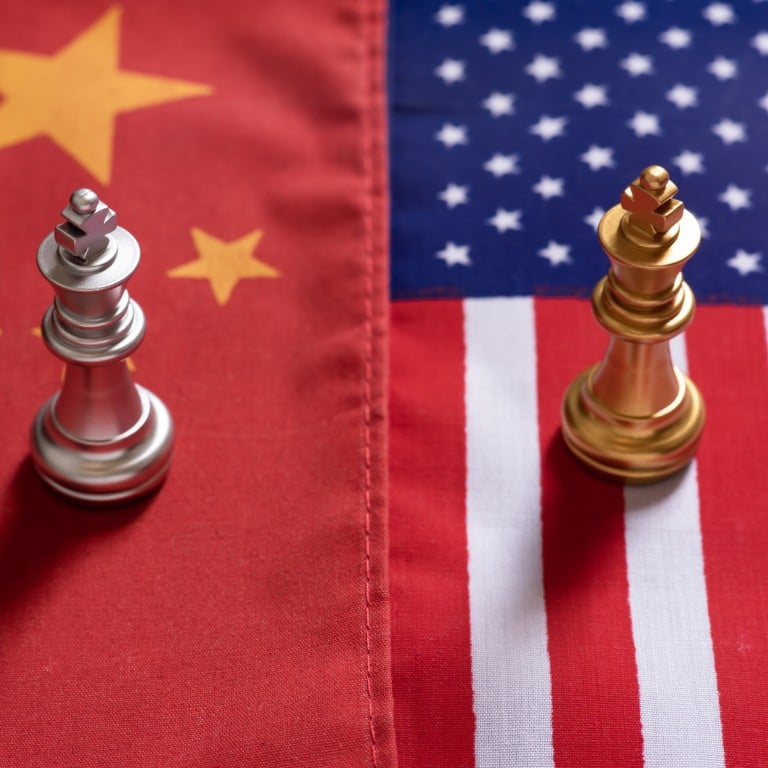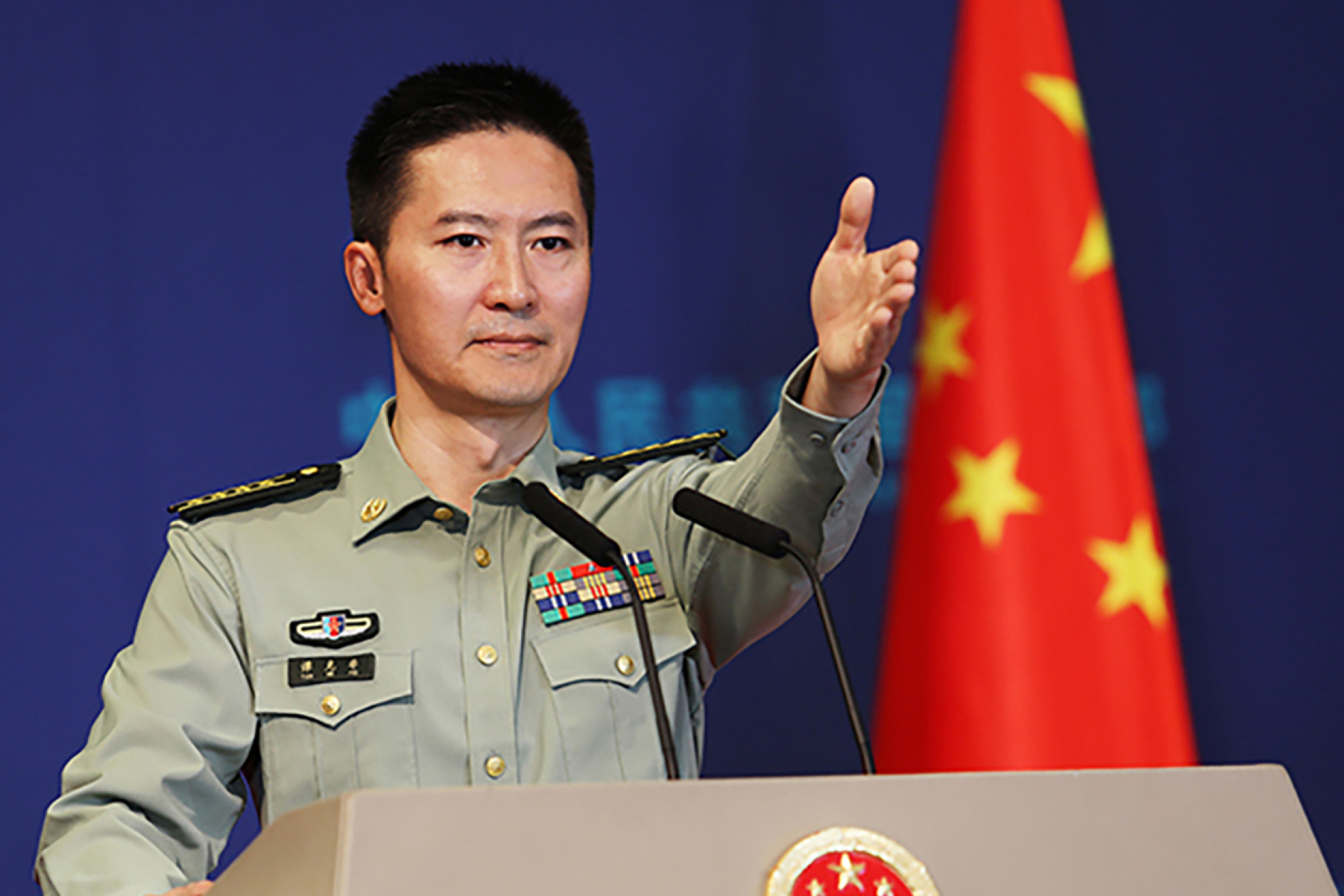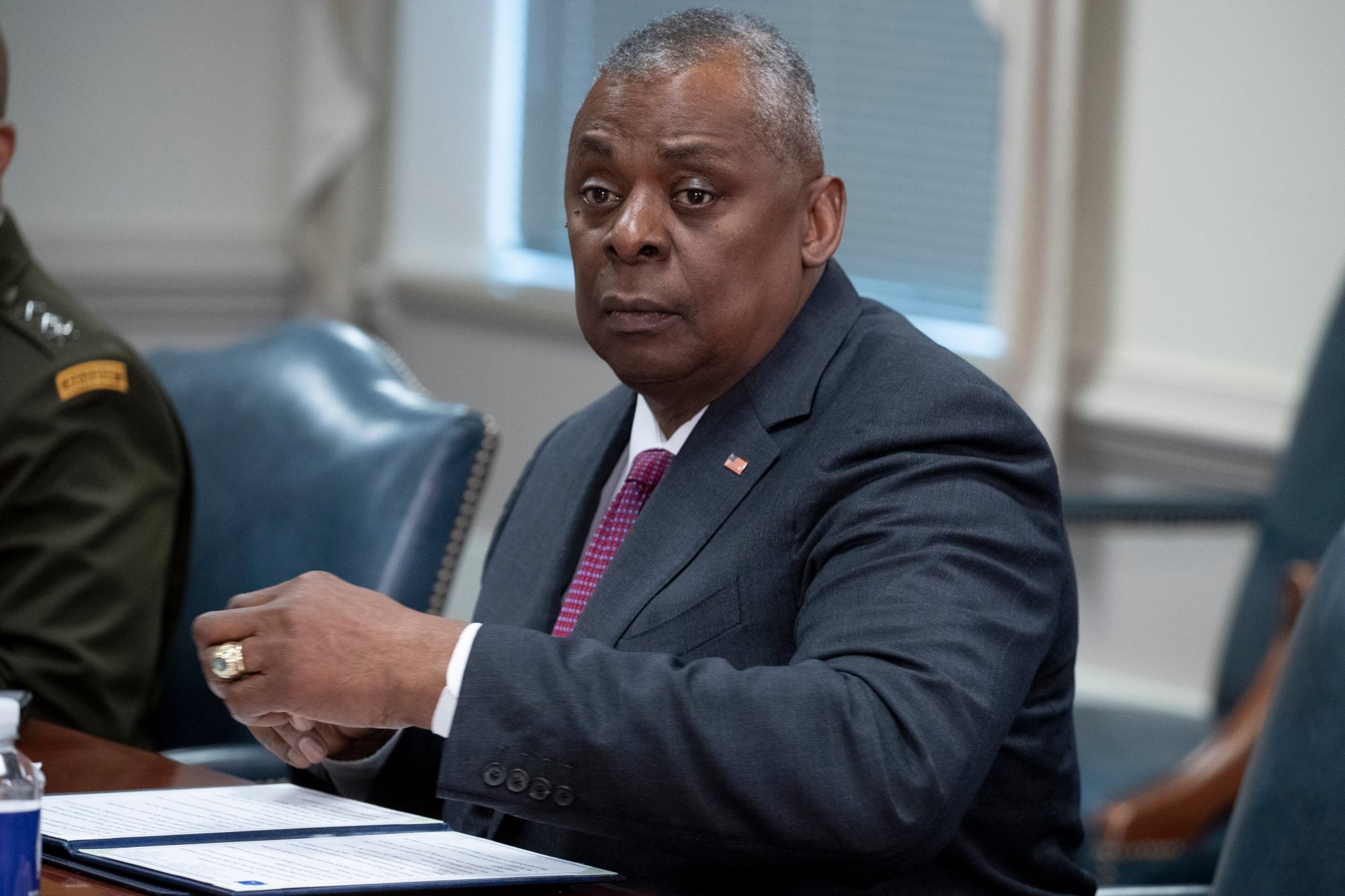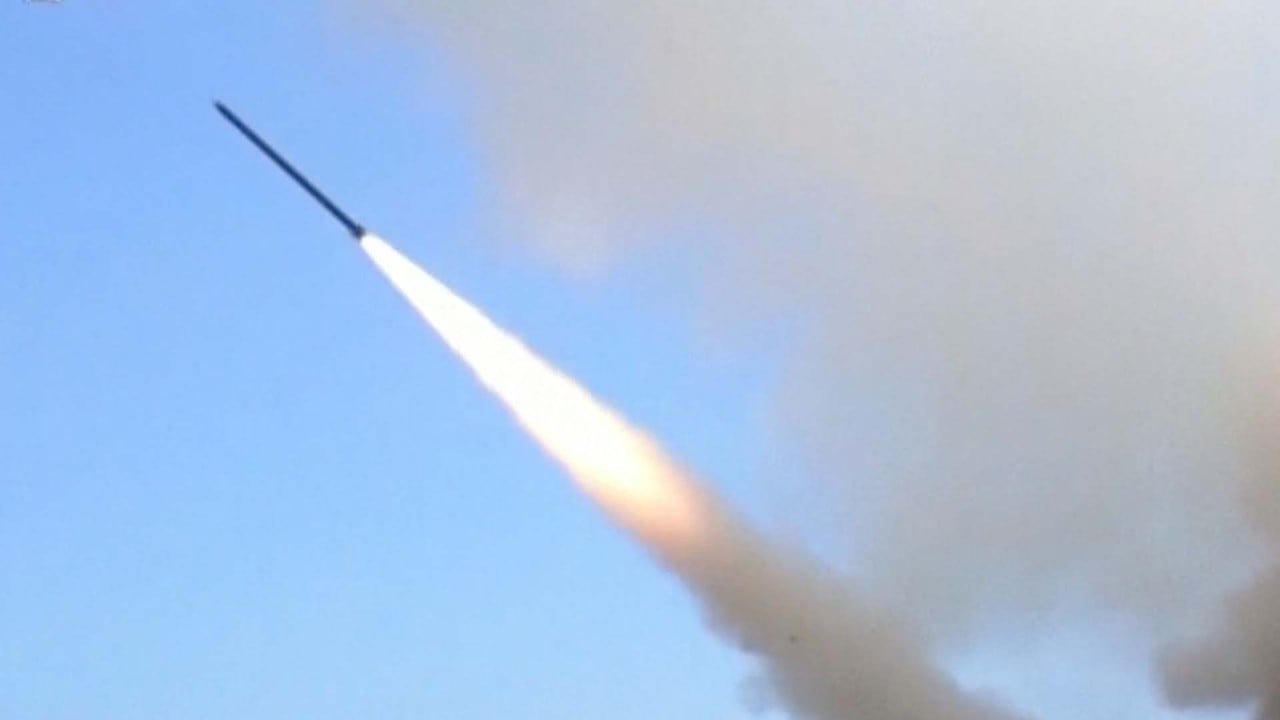
China brushes off US request to resume military dialogues
- US Defence Secretary Lloyd Austin had called for contacts to restart, after China cut off exchanges in retaliation for US House speaker’s visit to Taiwan in August
- But US should ‘respect China’s interests and major concerns and remove the negative factors that impede the development of ties’, a military spokesman says
The US needs to respect China’s interests and concerns if it is serious about reopening military communications, a Chinese military spokesman said on Thursday.
Contact has been cut off since August, after US House Speaker Nancy Pelosi visited Taiwan over Beijing’s protests. Responding to US Defence Secretary Lloyd Austin’s recent call for China to resume contact, Tan Kefei, a spokesman for China’s defence ministry, said that Washington bore all blame.

“Everything happens for a reason,” Tan told a monthly press conference in Beijing, adding that the suspension of the dialogues was China’s response in “safeguarding national sovereignty and dignity” against “malicious provocation” by the US.
“If the US side wants to improve military communication between China and the US, then it should match words with deeds, demonstrate its sincerity, and earnestly respect China’s interests and major concerns, and remove the negative factors that impede the development of ties between the two militaries,” he said.
Tan added that while China recognised the importance of maintaining military dialogues and ties with the US, it has “its principles and bottom lines”.
In retaliation to the Pelosi visit to Taiwan in August, Beijing called off three dialogues with the US military: the China-US Theatre Commanders’ Talk, the Defence Policy Coordination Talks and the Military Maritime Consultative Agreement meetings.
Besides the three cancelled mechanisms, other military communication channels still exist, including direct hotlines between the defence ministers and their chiefs of staff. It has been reported that telephone calls from top Pentagon officers to their Chinese counterparts have not been answered since the Pelosi visit.
But earlier this month, Austin said that he had communicated with his Chinese counterpart, Defence Minister Wei Fenghe, who agreed that open communications were important.

Austin said that his department was working to reopen channels of military communication with China, something that he described as critical for both countries.
“We’ll do everything we can to continue to signal that we want those channels open, and I would hope that China will begin to lean forward a bit more and work with us,” Austin told a TV interviewer.
At the recently concluded national congress of the Communist Party, though, it was announced that Wei, 68, is retiring and expected to step down in March as defence chief.
Similarly, Li Zuocheng, the chief of China’s joint staff department and the point person for his US counterpart, Mark Milley, chairman of the Pentagon’s joint chiefs of staff, will also retire.
China’s reshuffled military leadership highlights Taiwan focus
General Li Shangfu, who was promoted to the Central Military Commission after the congress, is expected to succeed Wei as the new defence minister. However, Li is one of the Chinese generals sanctioned by the US for China’s purchase of Russian fighter jets and missiles.
If Li becomes defence minister, it would raise questions about how the Pentagon would deal with him; US officials are barred from conducting business with sanctioned individuals.


